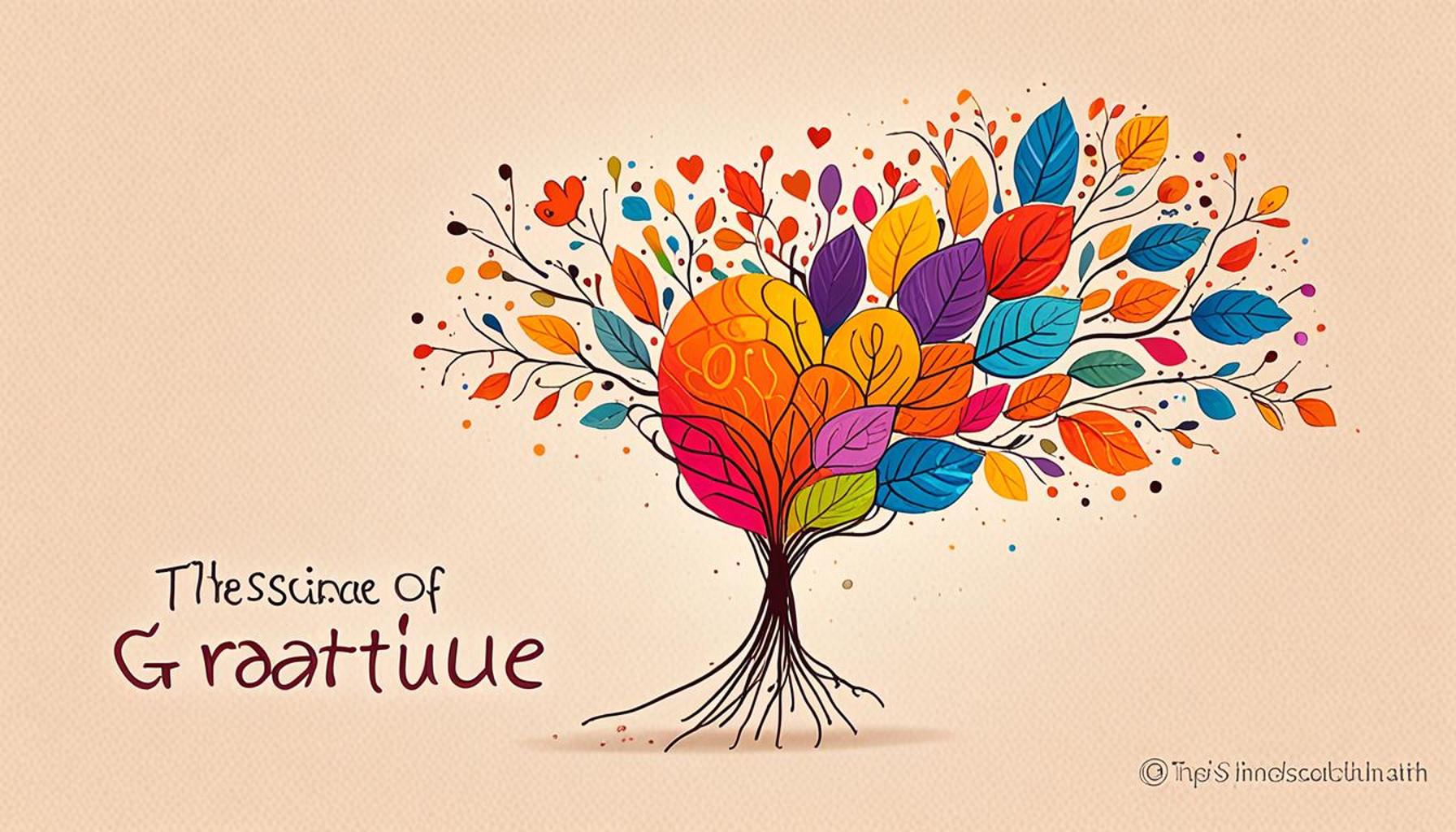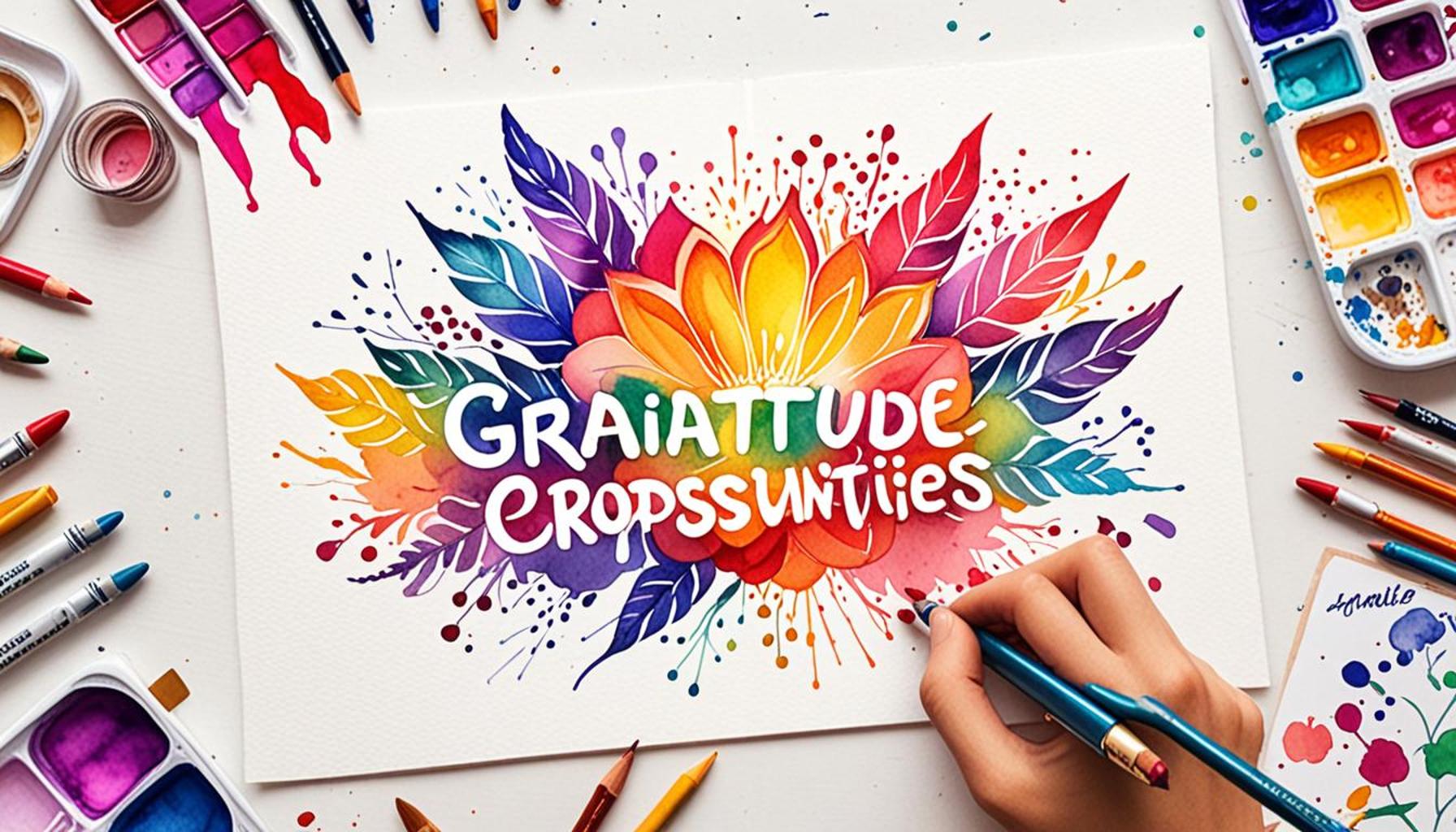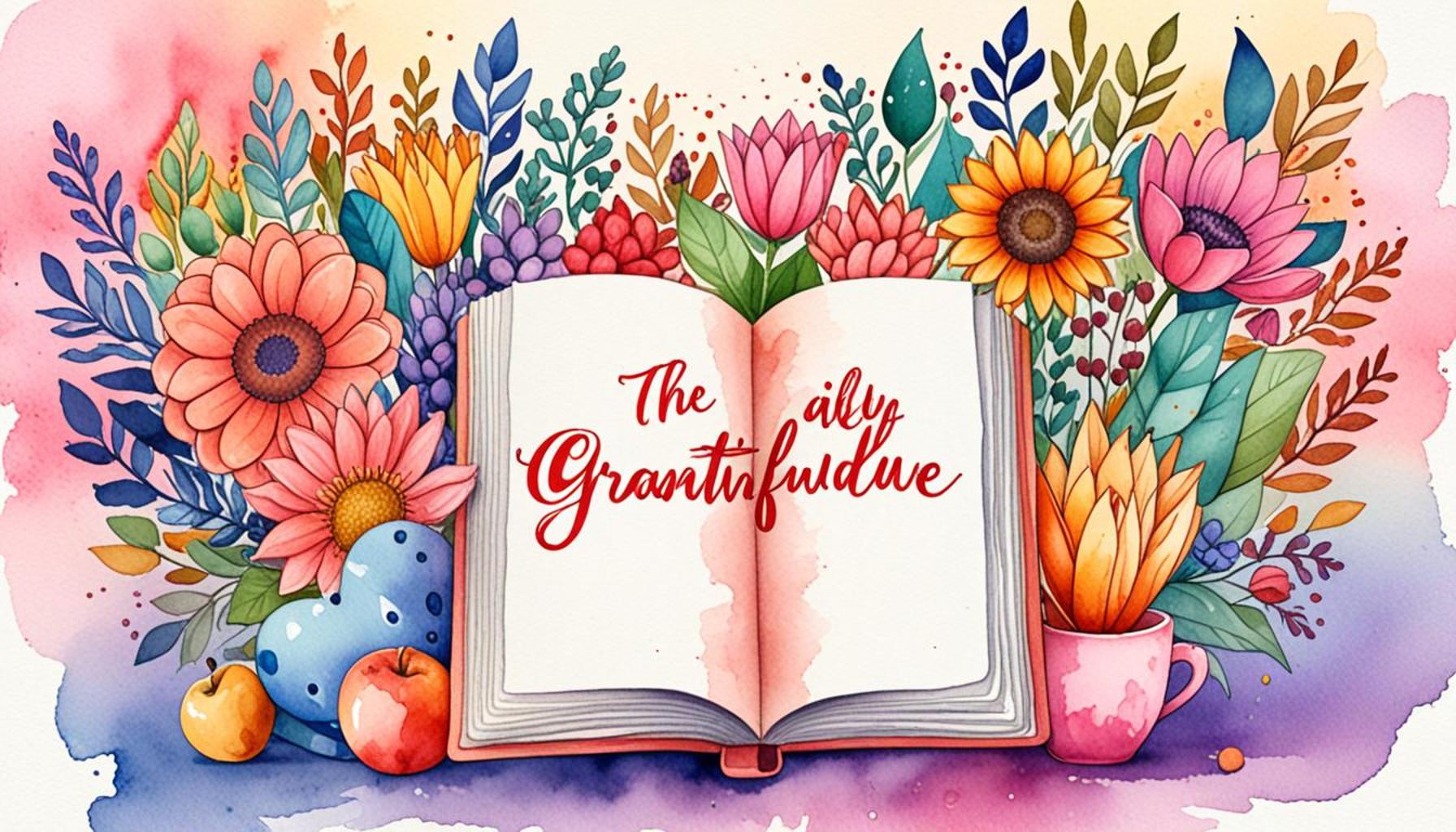The Science of Gratitude: How Thanking Can Improve Your Physical and Mental Health

Understanding the Power of Gratitude
Have you ever stopped to consider how a simple thank you can affect your life? Emerging research reveals that practicing gratitude can lead to significant improvements in both physical and mental health. From boosting your mood to enhancing your overall wellbeing, the impact is compelling. In a world where stress and negativity often dominate, adopting an attitude of gratitude can serve as a transformative approach to daily life.
The Benefits of Gratitude
- Improved Mental Clarity: Gratitude helps reduce negative emotions, leading to clearer thinking. Studies show that individuals who keep gratitude journals tend to have better cognitive functioning and a more positive outlook, allowing them to tackle challenges with greater resilience.
- Enhanced Relationships: Acknowledging others fosters goodwill and strengthens social connections. In Nigeria, where community relations are paramount, expressing gratitude can fortify bonds—be it within the family, among friends, or within the workplace. A simple thank you can open doors to deeper, more meaningful interactions.
- Better Sleep Quality: Regularly expressing thanks can result in deeper, more restful sleep. Research indicates that individuals who practice gratitude experience lower levels of anxiety, which in turn leads to improved sleep patterns. Imagine writing down three things you are grateful for before bed, creating a calming pre-sleep ritual.
- Boosted Immune Function: Positive emotions associated with gratitude can strengthen the immune system. Scientific studies suggest that individuals with a grateful mindset often have better overall health, allowing them to recover from illnesses faster and maintain robustness.
In a country like Nigeria, where community plays a vital role in daily life, the significance of gratitude can resonate even further. Consider how expressing appreciation to a colleague for their hard work can lead to increased morale and productivity. Similarly, thanking a family member for their support can reinforce familial bonds, creating an atmosphere of love and respect. Imagine the ripple effect of expressing appreciation in your family, workplace, or local community; it encourages a culture of kindness that benefits everyone.
Exploring the Science
Delving into the science behind gratitude unveils fascinating insights. Numerous studies have shown that individuals who practice gratitude regularly report higher levels of happiness and lower levels of depression. For instance, a study by the University of California found that individuals who kept a gratitude journal reported fewer health complaints and a greater sense of well-being. This growing body of research suggests that the act of thanking others is not just a cultural norm but a health-enhancing practice. By integrating gratitude into daily routines, individuals can combat the stresses of modern living and embrace a more positive mindset.
Ultimately, gratitude is more than just a social nicety; it is a powerful tool that can reshape experiences and foster positivity in everyday life. As we begin to embrace gratitude, particularly in the rich cultural context of Nigeria, we can not only enhance our personal well-being but also contribute to a more connected and harmonious society.
CHECK OUT: Click here to explore more

The Psychological Mechanisms Behind Gratitude
Understanding how gratitude works on a psychological level can illuminate why it has such profound effects on our health. At its core, gratitude shifts the focus from what is lacking in life to what is abundant. This cognitive reframing helps create a more positive emotional landscape, which is essential for overall well-being. Research has consistently shown that individuals who prioritize gratitude experience heightened levels of happiness and life satisfaction. This emotional uplift can be particularly beneficial in high-stress environments, as it empowers individuals to navigate adversity with greater ease and resilience.
Notably, gratitude has been linked to the production of neurotransmitters such as dopamine and serotonin, often termed the “feel-good” hormones. When we express thanks, our brain releases these chemicals, resulting in feelings of joy and contentment. One study published in the journal *Psychological Science* found that participants who engaged in gratitude practices reported more robust emotional health, had fewer negative emotions, and experienced more positive moods throughout the day. This biological basis underscores why gratitude can be a powerful agent for change in our mental health trajectories.
The Impact on Physical Health
The mental benefits of gratitude are complemented by its physical health advantages. Here’s how:
- Cardiovascular Health: Gratitude may play a role in lowering blood pressure. A study conducted by the University of Utah revealed that individuals who regularly express gratitude have better heart health and lower instances of heart disease.
- Stress Reduction: Recognizing the positive aspects of life can diminish the effects of stress on the body. Grateful individuals often report lower levels of perceived stress and anxiety, leading to decreased levels of the stress hormone cortisol.
- Physical Activity: Studies show that gratitude motivates individuals to engage in healthier activities, such as exercise. This is particularly relevant in Nigeria, where communal activities, such as group runs or traditional dances, can be integrated into routines to foster health through gratitude.
- Enhanced Recovery: In the context of illness or recovery, expressing gratitude can aid in faster healing processes. Research indicates that grateful patients often experience shorter hospital stays and better post-operative outcomes than their less grateful counterparts.
This integration of gratitude into our daily lives isn’t merely a fleeting emotional experience but rather a foundational component of our overall health. By making an effort to cultivate gratitude—whether it’s through journaling, verbal expressions, or community rituals—individuals can potentially unlock a pathway to improved physical and mental health. In Nigeria, where communal support is highly valued, the practice of gratitude can foster strong social networks, ensuring that everyone can benefit from this powerful psychological tool.
The Science of Gratitude: Unlocking Health Benefits
In the realm of psychological research, the concept of gratitude has emerged as a powerful and transformative force. Numerous studies reveal that practicing gratitude can lead to profound changes in both physical and mental health. The positive effects of gratitude extend beyond mere emotions; they permeate various aspects of life, contributing to an overall better existence.
| Advantage | Description |
|---|---|
| Enhanced Mood | Gratitude fosters a positive outlook, reducing feelings of resentment and negative emotions. |
| Improved Sleep Quality | Those who practice gratitude typically experience deeper, more restful sleep, contributing to better overall health. |
| Stronger Immune System | Gratitude is linked to a stronger immune response, potentially leading to fewer illnesses. |
| Reduced Stress | Practicing gratitude can lower levels of cortisol, the hormone associated with stress. |
The benefits outlined in the table highlight the astounding ways in which gratitude can reshape an individual’s health. From enhanced moods to improved sleep quality, it signals an essential practice that anyone can incorporate into their daily lives. Understanding the psychological underpinnings of gratitude can empower individuals to harness its benefits, leading to healthier and happier lifestyles. As the evidence mounts, incorporating gratitude practices becomes not just an option, but a necessity for those seeking enhanced well-being.
As we continue to unravel the ties between gratitude and health, it is essential to explore practical ways to incorporate this practice into our daily routines, laying the groundwork for a more fulfilling existence.
ADDITIONAL INSIGHTS: Expand your understanding here
The Social Dimensions of Gratitude
Gratitude is more than a personal sentiment; it functions profoundly within social contexts, strengthening relationships and deepening social bonds. Engaging in the practice of gratitude can foster a sense of belonging and community, which is incredibly beneficial for mental health. The social support derived from expressing gratitude can act as a buffer against mental health issues such as depression and anxiety, creating a protective layer against the stresses of everyday life.
In Nigeria, where communal ties play a vital role in individual well-being, gratitude can be cultivated through cultural practices and traditions. For instance, the African philosophy of Ubuntu—‘I am because we are’—echoes the principles of gratitude by emphasizing interconnectedness. This philosophy nurtures social cohesion, as community members express appreciation for one another, whether through gratitude rituals or simple acts of kindness that promote harmony.
Gratitude and Conflict Resolution
Interestingly, gratitude serves as a powerful tool in resolving conflicts. Individuals who practice gratitude tend to have higher empathy levels and better communication skills. This enables more constructive dialogues, facilitating resolution rather than escalation. In various studies, participants who expressed gratitude reported feeling more inclined to forgive others and exhibit less resentment. This dynamic is especially important in Nigeria, where the culture often emphasizes reconciliation and family ties. By promoting gratitude in relationships, individuals can work towards healing, even amid disputes.
Long-term Benefits of a Gratitude Practice
The long-term benefits of incorporating gratitude into daily life yield lasting changes to mental health and well-being. Research published in *The Journal of Personality and Social Psychology* indicates that individuals who actively practice gratitude tend to report a more enduring sense of happiness and a significant decrease in symptoms of depression over time. The practice can range from gratitude journaling to simple verbal acknowledgments of appreciation shared with friends and family. Implementing a structured gratitude practice could unlock benefits, particularly in communities where mental health resources are limited.
This sustained attention to gratitude not only enriches personal lives but also enhances community health. For example, local Nigerian initiatives focusing on gratitude within community settings can increase collective resilience. When groups of people come together to express gratitude—whether for support during difficult times or for shared successes—the resulting camaraderie can uplift morale and foster an environment more conducive to well-being and healing.
The Economic Implications of Gratitude
Beyond the personal and relational aspects, gratitude may have broader economic implications as well. Organizations that nurture a culture of gratitude often experience improved employee satisfaction and productivity. When employees feel appreciated, their engagement increases, resulting in better performance and retention rates. For instance, Nigerian businesses focusing on employee well-being through gratitude initiatives may not only improve workplace morale but potentially enhance overall economic stability in communities. Gratitude, thus, serves as a catalyst for fostering not just psychological and physical well-being but also economic progress.
In essence, embracing gratitude at various levels—personal, social, and economic—can weave a fabric of support and resilience, vital for thriving in the fast-paced modern world. The ability to express appreciation and acknowledge the value in our lives and the lives of others can foster healthier, more supportive communities across Nigeria and beyond.
YOU MAY ALSO LIKE: Read read another article
Conclusion: Embracing Gratitude for a Healthier Future
In conclusion, the science of gratitude reveals profound implications for both physical and mental well-being. By acknowledging the power of thanks, individuals can unlock pathways to improved emotional resilience, enhanced relationships, and even economic stability. Studies consistently indicate that those who practice gratitude report heightened levels of happiness, reduced symptoms of depression, and greater satisfaction in their lives.
As evidenced through cultural practices in Nigeria, gratitude also serves as a social glue, fostering bonds that are essential in navigating both personal and communal challenges. Whether through community initiatives celebrating appreciation or individual acts of kindness, the transformative nature of gratitude cultivates an environment ripe for healing and connection. Furthermore, the ability of gratitude to facilitate conflict resolution not only mitigates personal grievances but enhances collective harmony.
Importantly, the long-term investment in gratitude practices could lead to healthier, more sustainable communities. Local businesses embracing a culture of gratitude can see increased employee satisfaction and productivity, hinting at a vital economic link. As gratitude becomes embedded within the fabric of daily life, it has the potential to elevate entire communities, creating an atmosphere of support and cooperation crucial for resilience in today’s fast-paced world.
In essence, let us not underestimate the simple yet powerful act of expressing appreciation. By integrating gratitude into our lives, we pave the way for a brighter, healthier future—profoundly impacting not just ourselves, but enriching the lives of those around us. Continually exploring and embracing this practice can ultimately become a cornerstone for a happier, healthier Nigeria and beyond.


